
Robohub.org
Into the heart of a glacier — with a drone
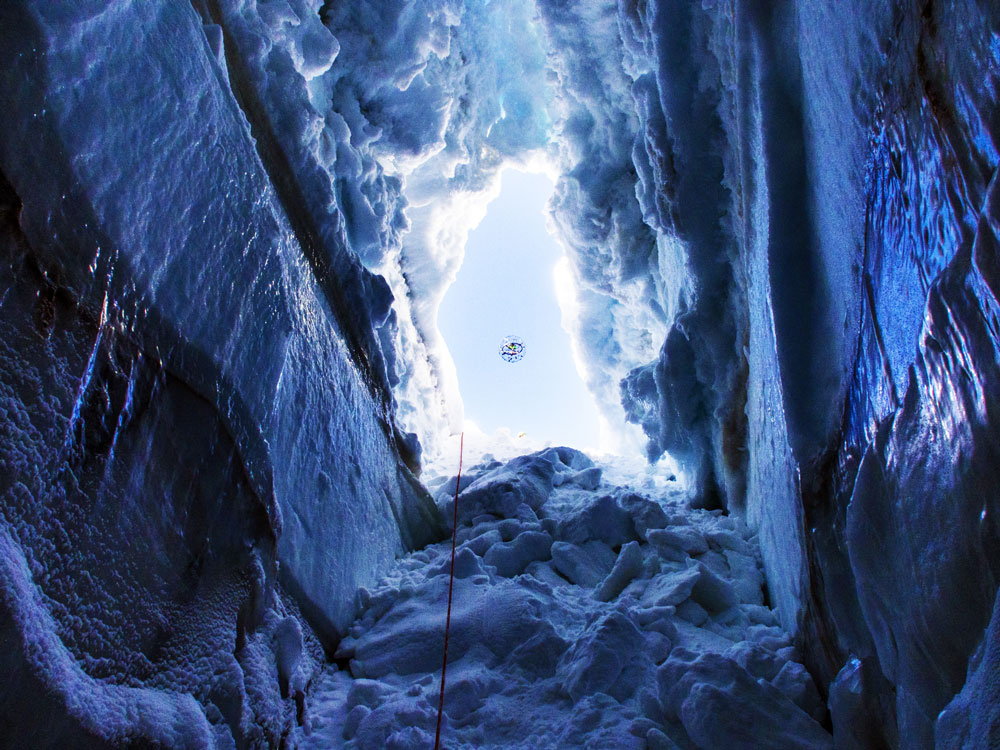
Photo credit: Pierre-Yves Guernier
With their near-vertical walls and deep fractures, glacier crevasses are dangerously narrow ice caves that present a huge risk to search and rescue teams. In a partnership between Flyability (Winner of the 2015 UAE Drones for Good Award) and the Zermatt Glacier mountain rescue team, drones were used to explore a remote crevasse in the Swiss Alps. The goal is to one day use the drones to help locate injured parties before dispatching a rescue team into dangerous territory, and also to help refine rescue techniques related to crevasse fall emergencies.
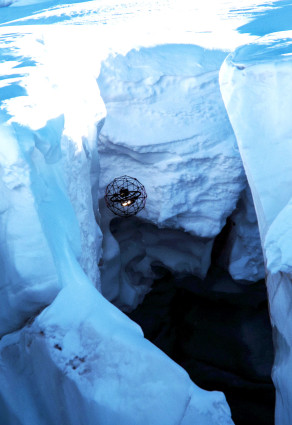
Photo credit: Pierre-Yves Guernier
Until now, crevasses have been largely inaccessible (both to people and to robotic technologies) because their uneven narrow walls make them extremely difficult to navigate. The Flyability drone, however, turned this to advantage by using its spherical, freely rotating protective cage — called a gimbal — to bump its way safely down into the crevasse and back up to the surface, capturing a rare view of the landscape along the way. The embedded full HD camera, digital live video transmission, and powerful lighting system allowed the drone to operate in the heart of the mountain glacier, tens of meters below the surface.
The gimbal also makes the drone safe to fly close to humans, even while being remotely operated by an untrained pilot — another feature of critical importance in search and rescue operations.
Flyability SA develops collision-resistant drones for the inspection and exploration of inaccessible and confined environments such as those found in industrial inspection and search and rescue scenarios, in order to quickly and cost effectively provide crucial image and thermal information needed to locate damage or victims.
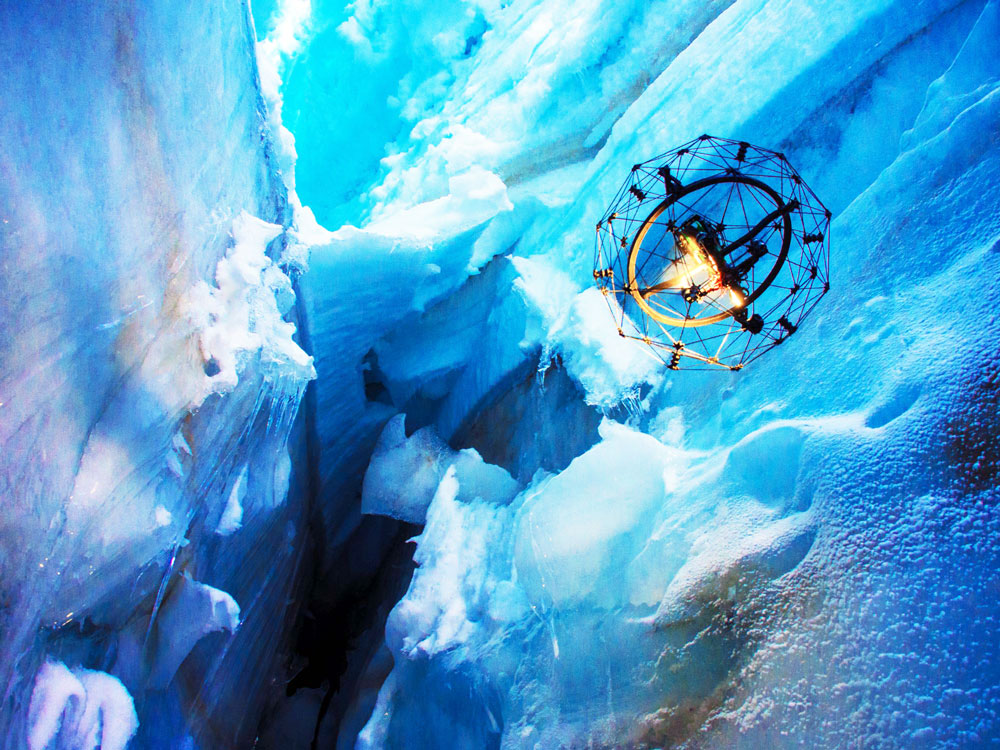
Photo credit: Pierre-Yves Guernier
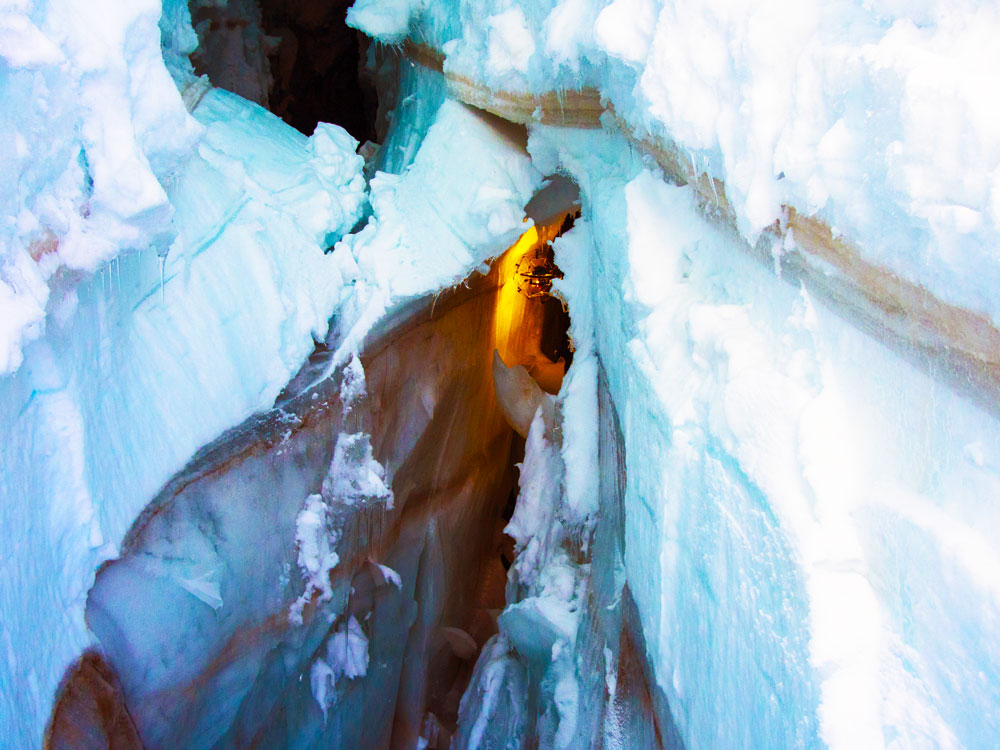
Photo credit: Pierre-Yves Guernier
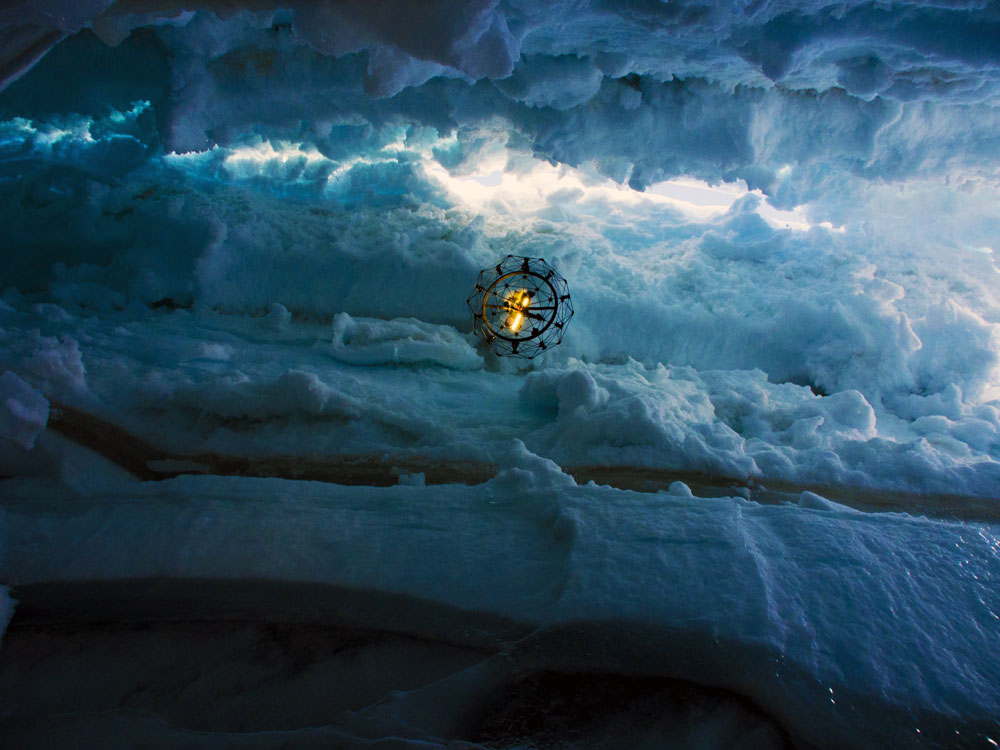
Photo credit: Pierre-Yves Guernier
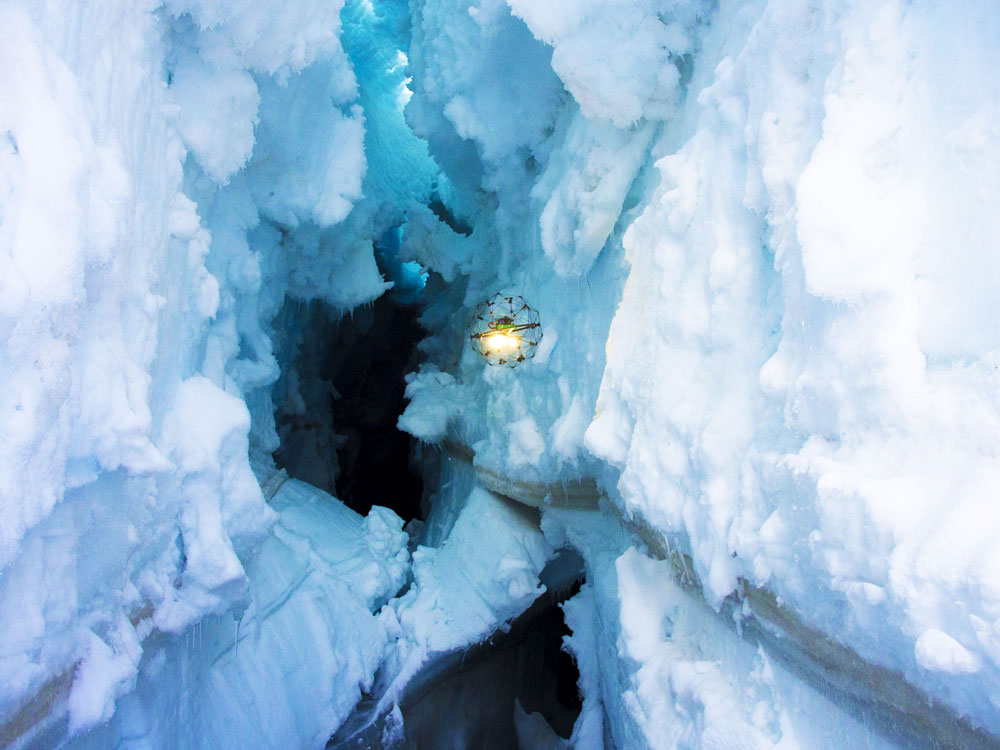
Photo credit: Pierre-Yves Guernier
tags: c-Aerial, cx-Exploration-Mining, drones, Flyability, UAVs





